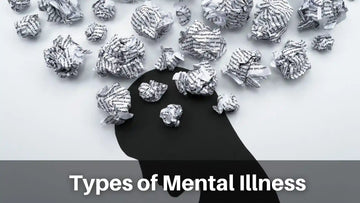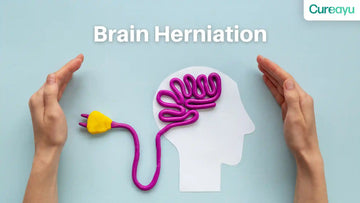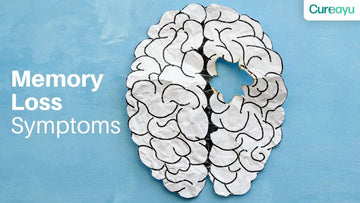In today’s fast-paced world, stress has become an all-too-common companion in our lives. The demands of modern life can elicit a wide range of emotions and reactions. This blog looks into the depths of stress, its numerous forms, origins, symptoms, and effective strategies to handle it.
What Is Stress
- Stress is a normal physiological response that helps us deal with difficult situations. It’s the body’s way of bracing itself for a perceived threat or demand.
- Stress is not always unpleasant; in fact, it can be a motivating force, a phenomenon known as eustress.
- Distress, on the other hand, is a harmful and overwhelming type of stress.
Stress Facts & Statistics In India
- According to a poll conducted by the Indian Psychiatry Society, around 42.5% of Indian employees suffer from stress-related health problems.
- Workplace stress is a major factor, affecting 30% of professionals in India.
- The COVID-19 pandemic has brought another layer of dread and uncertainty to many people’s lives.
Also Read: A Deep Dive into Depression Signs, Causes, and Treatments
Types Of Stress
- Acute Stress: Short-term stress triggered by specific events or situations.
- Chronic Stress: Prolonged stress that persists over an extended period, often resulting from ongoing life challenges.
- Episodic Stress: Frequent, acute stress episodes, often experienced by people who are highly driven and anxious.
- Traumatic Stress: Resulting from exposure to a traumatic event, such as accidents or natural disasters.
Causes and Reasons For Stress
- Work-Related Stress: Workloads that are too heavy, long hours, deadlines, and workplace problems.
- Financial Stress:Concerns about debt, costs, and financial instability are examples of financial stress.
- Relationship Stress: Conflicts between spouses, family concerns, and social demands.
- Health-Related Stress: Illness, chronic illnesses, and worry about one’s health are all examples of health-related stress.
- Environmental Stress: Pollution, noise, and overpopulation are all examples of environmental stressors.
Side Effects Of Stress On Overall Health
- Cardiovascular Issues: Increased risk of heart disease and hypertension.
- Mental Health Problems: Anxiety, sadness, and other mood disorders are examples of mental health issues.
- Digestive Problems: Stress can cause digestive problems such as irritable bowel syndrome.
- Weakened Immune System: Stress can weaken your immune system, making you more susceptible to sickness.
- Sleep Disturbances: Insomnia or interrupted sleep patterns are frequent sleep disturbances.
Also Read: Reduce Stress and Improve Sleep Quality – Benefits Of Deep Breathing & How To Practice It
Physical Symptoms Of Stress
- Muscle tension and soreness
- Frequent headaches or migraines
- Increased heart rate and blood pressure
- Gastrointestinal problems like nausea or diarrhea
- Changes in appetite, leading to overeating or loss of appetite
- Skin issues, such as acne or eczema
- Fatigue and low energy levels
Also Read: 10 Dos and Don’ts to Control Type 2 Diabetes
How To Diagnose Stress
- Self-Assessment: Examine your emotional and physical well-being for symptoms of stress.
- Medical Evaluation: Consult a healthcare practitioner to rule out any underlying health concerns.
- Psychological Evaluation: Mental health specialists can diagnose and provide guidance.
Symptoms Of Stress
- Emotional Symptoms: Anxiety, impatience, mood fluctuations, and a sense of being overwhelmed are some of the emotional symptoms.
- Physical Symptoms: Headaches, muscle tension, weariness, and appetite disturbances are among the physical symptoms.
- Behavioral Symptoms: Social disengagement, restlessness, and changes in sleep habits are some of the behavioral symptoms.
- Cognitive Symptoms: Difficulty concentrating, memory issues, and racing thoughts are some of the cognitive symptoms.
Ways to Reduce Stress
- Mindfulness and Meditation: Use mindfulness and meditation to stay present and lessen anxious thoughts.
- Physical Activity: Physical activity releases endorphins, which improves mood and reduces stress.
- Time Management: To reduce time-related stress, prioritize work and set realistic schedules.
- Social Support: Seek emotional support from friends and loved ones.
- Relaxation Techniques: Deep breathing exercises, progressive muscular relaxation, and yoga are all effective relaxation techniques.
Also Read: Overcoming Anxiety Naturally: Causes, Treatment, and Herbal Medicines Unveiled
Stress Reduction Ayurvedic Advice
- Adaptogenic Herbs: Ashwagandha, Brahmi, and Tulsi are known for their stress-relieving qualities.
- Lifestyle Changes: Stick to a daily regimen, eat a balanced food, and get enough sleep.
- Abhyanga (Oil Massage): Regular self-massage with warm oil can help to soothe the nervous system.
- Meditation and Pranayama: Include these techniques to improve mental clarity and minimize stress.
- Avoid overstimulation: By limiting your exposure to loud noises, bright lights, and screen time.
Conclusion
stress is a complicated and pervasive phenomenon that impacts us in a variety of ways. While it is hard to eliminate stress completely from our life, knowing its various aspects and applying appropriate coping skills can help us lessen its harmful influence. In a country like India, where stress is a major concern, it’s critical to emphasize mental and physical well-being and investigate a holistic approach that incorporates both conventional and alternative stress management strategies. We can take substantial steps toward living a more balanced and harmonious existence by identifying the signals, receiving help when needed, and adopting lifestyle changes.












